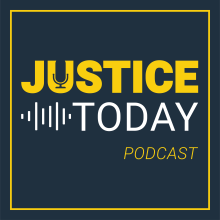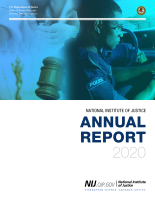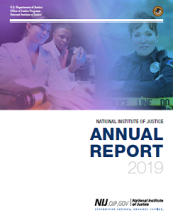Social Media
Fine-grained Classification of Drug Trafficking Based on Instagram Hashtags
A Whole Community Approach to Hate Crime Reduction: Research to Improve Prevention, Reporting, and Victim Support
Forensic Technology Center of Excellence, Fiscal Year 2021
A Frame Analysis of Violence and Accelerationism in Cognitive Radicalization
Mapping the Cyberstalking Landscape: An Empirical Analysis of Federal U.S. Crimes
Cyberstalking: A Growing Challenge for the U.S. Legal System
Driving Down Gun Violence
Driving Down Gun Violence, Part 1
Three LEADS Scholars serving in different law enforcement agencies and positions discuss their experiences with identifying and implementing evidence-based interventions to reduce gun violence. NIJ Senior Advisor Dr. Tamara Herold hosts this conversation with guests Police Chief Cecilia Ashe (Milford Delaware Police Department), Chief of Staff Lieutenant Matthew Barter (Manchester, NH Police Department), and Analytical Services Manager Mr. Jason Schiess (Durham, NC Police Department).
Confronting Online Extremism: The Effect of Self-Help, Collective Efficacy, and Guardianship on Being a Target for Hate Speech
Who Are the Online Extremists Among Us? Sociodemographic Characteristics, Social Networking, and Online Experiences of Those Who Produce Online Hate Materials
National Institute of Justice Annual Report 2020
National Institute of Justice Fiscal Year 2019 Annual Report
The Role of Mass and Social Media in Radicalization to Extremism
Social Media and Domestic Radicalization
Social media has become a potent tool for spreading extremist beliefs and promoting violent extremism. NIJ Social Science analyst Aisha Javed Qureshi joins writer-editor Paul Haskins for a conversation about how scientific research is helping law enforcement and other agencies understand and address this growing concern.






